Climate justice is essential if we are to succeed in preventing global warming of 1.5 to 2 degrees above pre-industrial levels. This is a point that receives far greater attention in the new Working Group II contribution to the IPCC Sixth Assessment Report than in previous reports. The Intergovernmental Panel on Climate Change (IPCC) published… Read more »
Climate Policy Must Be Inclusive to Be Successful
Climate justice is essential if we are to succeed in preventing global warming of 1.5 to 2 degrees above pre-industrial levels. This is a point that receives far greater attention in the new Working Group II contribution to the IPCC Sixth Assessment Report than in previous reports.
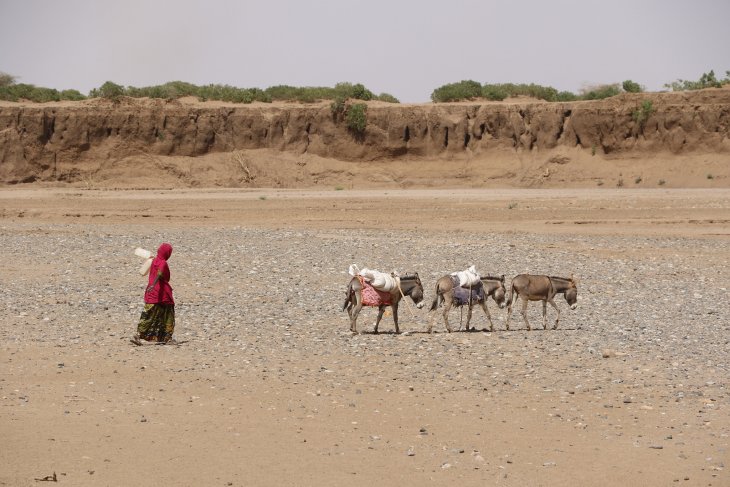
Photo: EU/ECHO/Anouk Delafortrie
The Intergovernmental Panel on Climate Change (IPCC) published the second part of its Sixth Assessment Report on 28 February 2022. Since the previous report was published in 2014, climate change has become ever more obvious. This is reflected both in the scientific literature and in people’s experiences around the world. Increased occurences of extreme weather events such as floods, heatwaves and associated wildfires, storms and hurricanes are all examples that have dominated the news media in recent years.Read More
The new Great Patriotic War
Leaders in both Ukraine and Russia are making ammunition out of the Soviet Union’s wartime history. Who are the fascists this time?
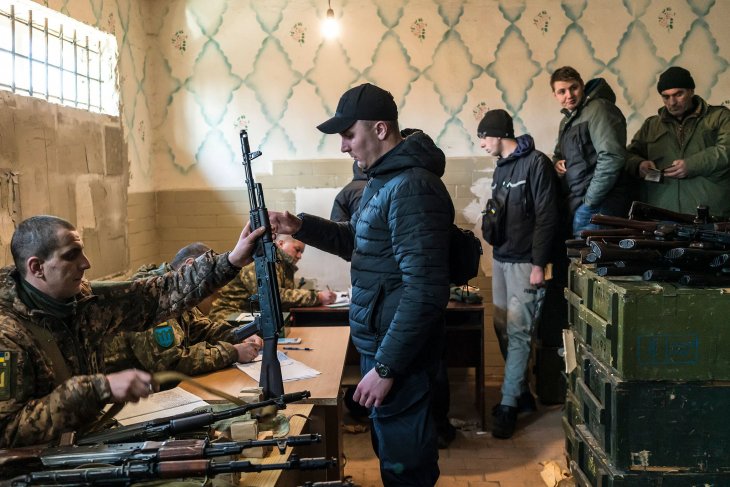
Ukrainian civilians signing up for military service in the war against the Russians. Photo: Manhhai / Flickr /CC BY-NC 2.0
It is both painful and strange to see photographs of Ukrainian civilians signing up for military service in the war against the Russians. Some of the volunteers are disturbingly young, their protective gear consisting of shin pads and ice-hockey helmets. Others look far too old to be soldiers.Read More
The Taliban, International Law and the Rest of the World
The population of Afghanistan is facing a humanitarian catastrophe. Twenty-three million Afghans, more than half of the population, are starving. The UN warns of a risk that a million Afghan children will die.
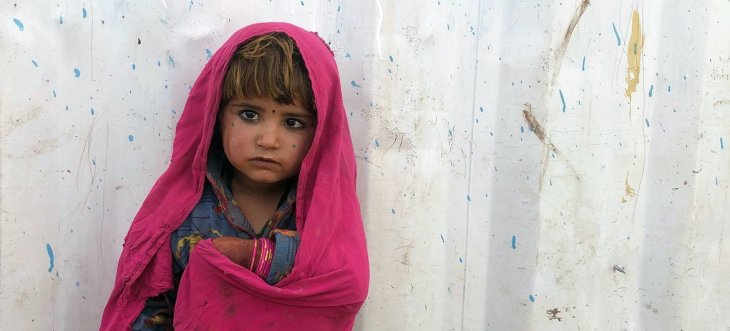
The UN warns of a risk that a million Afghan children will die. Photo: UNICEF / Monique Awad
In this situation, there is no way of avoiding cooperation with those in control of the country, namely the Taliban, in order to address the need.
The United States and its allies, who were responsible in 2001 for a military intervention that was intended to prevent international terrorism, but which turned into 20 years of warfare in Afghanistan, have an obvious responsibility.Read More
In Autocracies, a Little Media Freedom Can Go a Long Way
Mobilization in autocracies is inherently difficult. Potential dissidents face several hurdles, even when grievances are widespread and a regime is unpopular.
Participating in dissent is dangerous and leaves individuals at risk of repression by state security forces. Safety in numbers is possible if others also mobilize, but in autocracies people often lack information about what others think and what they are going to do.

News editor interrupting Russian state-controlled broadcast. Photo: Just Click’s With A Camera /Flickr
In a recent article, we show how even partial media freedom can make a major difference to nonviolent mobilization in autocracies. It is often assumed that media freedom is limited to democracies, and that autocratic regimes fully control the media and suppress independent information.
But many autocracies have some degree of media freedom, and many news sources are not fully controlled by the authorities (see Figure).
The editor of the independent Russian newspaper Novaya Gazeta, for example, was awarded the 2021 Nobel Peace Prize for efforts to safeguard freedom of expression. Moreover, the number of nondemocracies with partially free mass media has increased notably since the end of the Cold War.Read More
Arms and Influence in Ukraine
The supply of weapons and other military equipment has been one of two main responses by Western States to the invasion of Ukraine (the other being economic sanctions).
Compared to direct deployment of military forces, arms supplies are often seen as relatively uncomplicated and low cost means to assist a friendly or allied state.
Nevertheless, as this blog post argues, arms supplies involve complex tradeoffs between perceived risks and benefits. There are several interlinked reasons why supporters of Ukraine may decide to restrict supplies of arms that Ukraine wants to use in its fight against Russia.
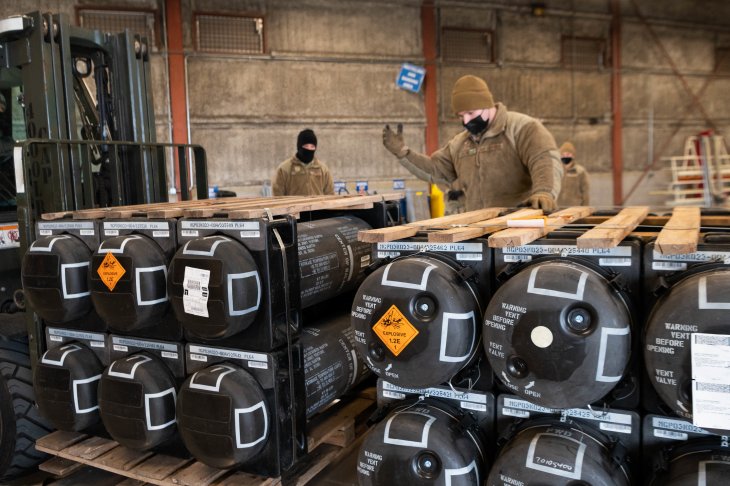
Airmen and civilians at Dover Air Force Base, Del., palletize ammunition, weapons and other equipment bound for Ukraine, Jan. 21, 2022. Photo: U.S. Air Force photo / Mauricio Campino
Read More
The Digital Battlefield
Photos, stories and videos featuring victims of the war in Ukraine are spreading all over the world on social media. This will change our perception of war.
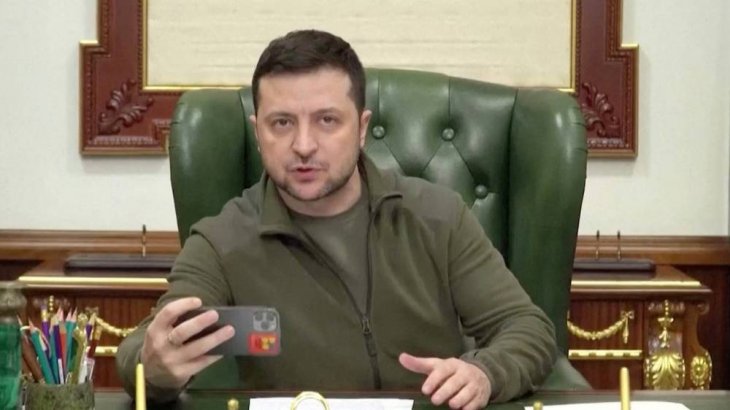
The Ukrainian government is embracing social media platforms and is doing everything it can to keep them accessible. Photo: President of Ukraine Official Website / Reuters
So far, cyber attacks and cyber operations have played a smaller role than expected in the warfare in Ukraine, social media on the other hand, have been more significant. Ukraine and the global tech giants are exploiting each other to mutual advantage in this war.
Ukraine’s use of social media and technology shows the importance of establishing narratives by disseminating information. Effectively, we are seeing a new form of “weapons of the weak”.
These new weapons have provided President Volodymyr Zelenskiy with an effective means of boosting resistance.Read More
Will the Russian-Ukrainian War Resonate in Syria?
The predictable and yet shockingly brutal Russian invasion into Ukraine on 24 February 2022 has in the course of three weeks sent many tremors across the world system.
Major stock markets experience strong corrections, oil prices register new highs, importers of wheat and sunflower oil are nervously checking their stocks, but one place that hasn’t seen a notable impact is, surprisingly, Syria.
Given the heavy dependency of the al-Assad regime on Russian military support, this counter-intuitive calm is, most probably, set to break.
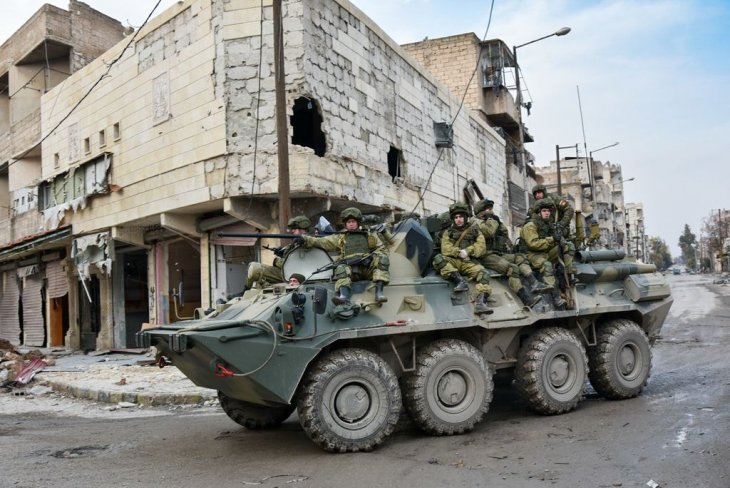
Russian soldiers in Aleppo, Syria in 2016. Photo: Ministry of Defense of Russia / Wikimedia Commons
Russia launched its military intervention in Syria in September 2015 for multiple reasons, but one of them definitely was to distract international and domestic attentions from the deadlocked hostilities in Donbass, which had failed to cut from Ukraine a large enough chunk of territory to answer to President Vladimir Putin’s far-fetched proposition on “Novorossiya”. The deployment of a limited grouping of Russian forces to the complex overseas conflict was a risky gamble, but it has achieved some of its goals, so Putin had reasons to declare it a victory, in fact, a number of times.Read More
What Motivates Soldiers to Fight, asks Jon Elster
Many commentators have claimed that Russia’s military leaders must have underestimated the Ukrainians’ resilience and battle morale.
This is most likely correct, but would it even have been possible for the Russian commanders to have made a more accurate estimate? There is reason to doubt that they could have done so. The only way to assess an enemy’s willingness to fight is to actually engage in combat.
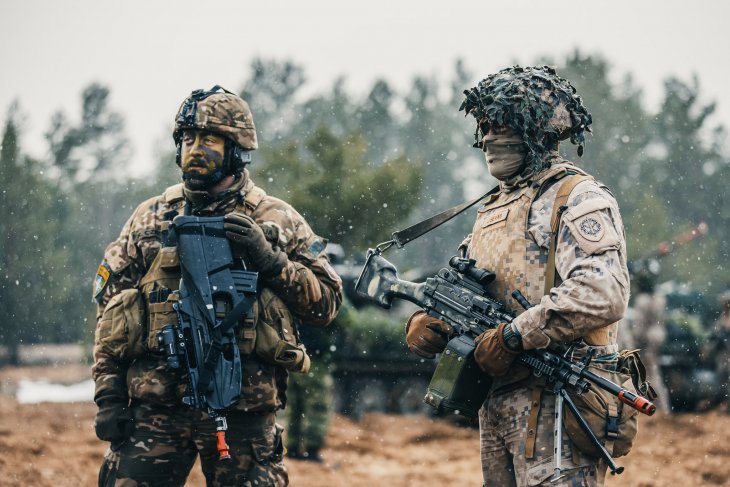
Photo: Latvian Army / Flickr / CC BY-NC-ND 2.0
Fascism and Masculine Ideals – Thoughts on the Russian War in Ukraine
The renewed Russian war of aggression against Ukraine is still raging on, and our thoughts naturally turn to the ways in which we can provide assistance and aid to both the defenders and the victims. If one simultaneously wishes to take an analytical look at the broader picture, there are multiple perspectives that would be of interest. Thus, it may be fitting to observe the war in Ukraine through the lens of gender equality.
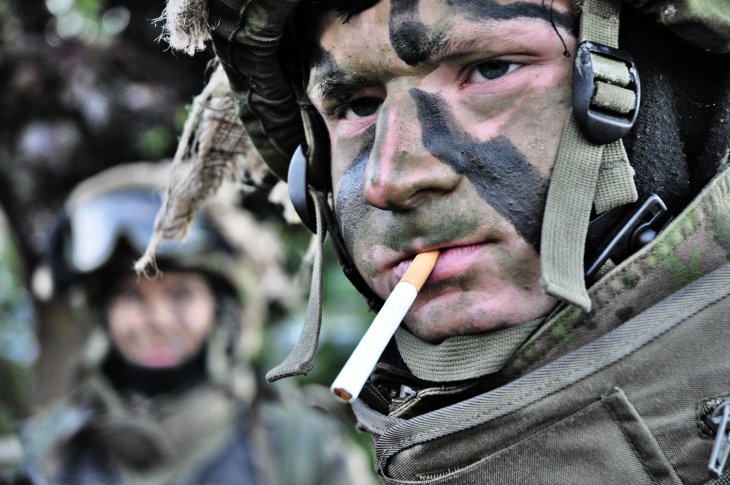
Photo: Jonas Forth / Flickr / CC BY-ND 2.0
Research shows that societies which are more gender equal also are more peaceful. The current developments illustrate in quite an unsettling way the connections between – on the one hand – the desire of the fascist-like Putin regime to dominate other peoples in the name of the Russian nation, and on the other an ideal of militaristic masculinity which Putin both pursues individually and strives to disseminate into Russian society.Read More